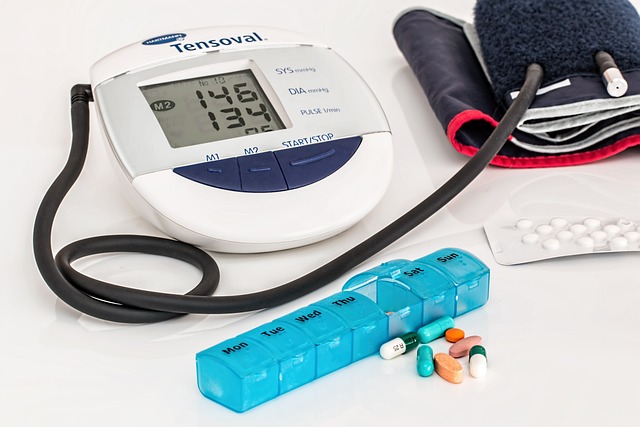
When it comes to health, most of us are familiar with the concept of reactive care—waiting until symptoms show up before seeking help. However, this approach often leads to situations where diseases have progressed too far, making them harder to treat. A smarter and more effective approach is preventive health, a proactive strategy that focuses on maintaining wellness and detecting potential issues before they manifest as noticeable symptoms. The principle behind preventive healthcare is simple: prevention is better than cure. In this comprehensive guide, we’ll explore the key aspects of preventive health and why it’s time to stop waiting for symptoms before taking action.
Understanding Preventive Health
Preventive health refers to a set of practices, screenings, and lifestyle choices aimed at preventing illness, promoting well-being, and enhancing the quality of life. Instead of waiting until we feel unwell, preventive health focuses on monitoring and maintaining optimal health to prevent the onset of diseases.
Preventive health isn’t just about doctors or clinics—it’s about making informed decisions on a daily basis that reduce your risk of illness and keep your body functioning at its best. This includes eating a balanced diet, exercising regularly, managing stress, getting adequate sleep, and following appropriate health check-ups and screenings.
The Importance of Preventive Health

Taking a preventive approach to healthcare offers numerous advantages, both in terms of physical well-being and financial savings:
1. Early Detection Saves Lives
Detecting health issues in their earliest stages increases the chances of successful treatment and recovery. For example, routine screenings such as mammograms for breast cancer, colonoscopies for colorectal cancer, and blood tests for diabetes can uncover problems before symptoms emerge. Catching a disease early gives healthcare providers more treatment options, reduces the need for aggressive interventions, and can significantly improve the prognosis.
2. Chronic Disease Prevention
Many chronic conditions such as diabetes, heart disease, and hypertension develop over time, often without clear symptoms at the outset. Preventive health measures, such as regular physical activity, maintaining a healthy weight, and managing cholesterol levels, help reduce the risk of developing these conditions in the first place.
3. Cost Savings
Preventive healthcare can significantly lower medical costs. The cost of treating advanced diseases is typically higher than the cost of preventive measures and early interventions. By investing in preventive care, you can save money on hospital visits, long-term treatments, and medications down the line.
4. Improved Quality of Life

Taking care of your health proactively not only helps prevent illness but also enhances your overall quality of life. Through consistent exercise, a balanced diet, and regular health monitoring, you will feel better, have more energy, and be able to enjoy your daily activities to the fullest.
Key Aspects of Preventive Health
Let’s break down the key pillars of preventive health that anyone can incorporate into their daily life for a healthier future.
1. Healthy Eating Habits
A nutritious diet is one of the most powerful preventive health strategies. Eating a variety of nutrient-dense foods—such as fruits, vegetables, whole grains, lean proteins, and healthy fats—helps maintain a healthy weight, improves metabolism, and reduces the risk of developing chronic diseases.
Some specific dietary guidelines include:
- Eat more whole foods: Minimize processed foods, sugary snacks, and refined carbohydrates. Whole grains, lean meats, and fresh produce should form the basis of your meals.
- Limit red meat and processed foods: High consumption of red meat and processed meats has been linked to heart disease, cancer, and other health problems.
- Portion control: Avoid overeating by listening to your body’s hunger cues. Eating smaller, balanced meals throughout the day can prevent weight gain and help manage blood sugar levels.
- Hydrate: Drink plenty of water throughout the day. Dehydration can affect your energy levels, metabolism, and overall health.
2. Physical Activity and Exercise
Regular exercise is vital for maintaining a healthy heart, strong muscles, and a functional body. Physical activity helps reduce the risk of chronic diseases such as cardiovascular disease, diabetes, and obesity. It also enhances mental health by reducing stress and boosting mood.
Recommendations for regular exercise include:
- Every week, try to get in at least 150 minutes of moderate-intensity aerobic exercise, such swimming, cycling, or brisk walking.
- Incorporate strength training exercises at least twice a week to build and maintain muscle mass.
- To preserve flexibility and lower the chance of injury, stretch frequently.
- Find an activity you enjoy: Whether it’s dancing, hiking, or yoga, doing something you love will keep you motivated.
3. Routine Health Screenings and Checkups
Even if you’re not feeling any symptoms, regular checkups and screenings are essential to identify potential health issues. These screenings allow healthcare professionals to detect conditions before they develop into serious problems.
Some essential health screenings include:
- Blood Pressure Check: High blood pressure often has no obvious symptoms but can lead to heart disease, stroke, and kidney problems.
- Blood Sugar Testing: Diabetes is a silent disease that often goes undiagnosed until significant damage has occurred. Regular blood sugar testing helps catch it early.
- Cholesterol Tests: Elevated cholesterol levels increase the risk of heart disease. A simple blood test can monitor your cholesterol and help you make dietary and lifestyle changes.
- Cancer Screenings: Depending on your age, sex, and family history, your doctor may recommend screenings for cancers such as breast, cervical, prostate, and colorectal cancers.
- Vision and Hearing Tests: Regular eye exams and hearing tests can detect issues like glaucoma, cataracts, or hearing loss early, before they become debilitating.
4. Mental Health Care
Maintaining your physical health is crucial, but so is taking care of your emotional health. . Chronic stress, anxiety, and depression can contribute to physical ailments, including cardiovascular disease, digestive issues, and weakened immunity.
Some tips for nurturing mental health include:
- Practice mindfulness: Methods like deep breathing and meditation can help you focus better and feel less stressed.
- Stay connected: Social relationships and emotional support networks are essential for mental well-being. Make time for friends, family, and hobbies.
- Get adequate sleep: Try to get between seven and nine hours per night. Poor sleep can affect both your mood and your physical health.
- Seek professional help if needed: If you’re experiencing ongoing mental health challenges, don’t hesitate to seek help from a counselor or therapist.
5. Avoiding Risky Habits

Certain lifestyle habits can significantly increase your risk of illness and disease. Maintaining your health can be greatly aided by avoiding or changing dangerous behaviors. Some key habits to avoid include:
- Smoking: The world’s leading preventable cause of mortality is smoking. It increases the risk of lung cancer, heart disease, and stroke.
- Excessive alcohol consumption: Drinking in excess can lead to liver disease, cardiovascular problems, and a weakened immune system.
- Sedentary behavior: Sitting for long periods has been linked to various health issues, including obesity and heart disease. Take breaks, stand up, and move throughout the day.
- Substance abuse: Drug abuse has long-term health consequences that can affect both your physical and mental well-being.
6. Vaccinations
Preventive vaccines help protect you from a variety of infectious diseases. Staying up to date with your vaccinations is an essential part of preventive health, especially for children, the elderly, and those with weakened immune systems.
Some important vaccines include:
- Flu vaccine: An annual flu shot can protect you from the seasonal flu virus, which can cause severe illness and complications.
- Pneumonia vaccine: This helps prevent pneumonia, particularly in older adults.
- Hepatitis B vaccine: Hepatitis B can lead to chronic liver disease and is preventable through vaccination.
- HPV vaccine: The HPV vaccine prevents several types of cancers caused by the human papillomavirus.
Taking Action Now
Now that you understand the importance of preventive health, it’s time to take action. Don’t wait for symptoms to appear before taking steps to improve your health. Start with small, manageable changes to your diet, exercise routine, and overall lifestyle. Schedule routine checkups, get the necessary screenings, and invest in your mental well-being.
By being proactive, you can enjoy a longer, healthier life and avoid unnecessary suffering and medical expenses. The best part? Preventive health isn’t just about avoiding illness—it’s about feeling your best and living your life to the fullest.
Extra preventive health:
In addition to the fundamental preventive health strategies, there are several other proactive steps you can take to further protect your health. One crucial aspect is maintaining a healthy weight, as being overweight increases the risk of conditions like heart disease, diabetes, and joint issues. Regular dental checkups are also essential for detecting oral health problems, such as cavities or gum disease, that can impact overall health. Additionally, practicing good hygiene, such as frequent handwashing and proper sanitation, helps prevent infections and diseases
Conclusion
Preventive health is a smart, proactive approach to living a long and healthy life. By making conscious decisions to prioritize your health today, you’re taking control of your future. So, stop waiting for symptoms to appear. Embrace the power of preventive care, and start building a healthier, happier life for yourself and your loved ones.
Remember, small changes can lead to big results, and every step you take toward better health is a step in the right direction. Start today—your future self will thank you!
By emphasizing prevention, you can lower your chance of developing chronic illnesses and enhance your quality of life.. Get proactive about your health today, and stop waiting for symptoms to make their presence known.
